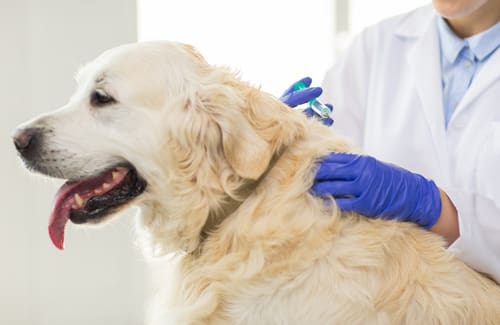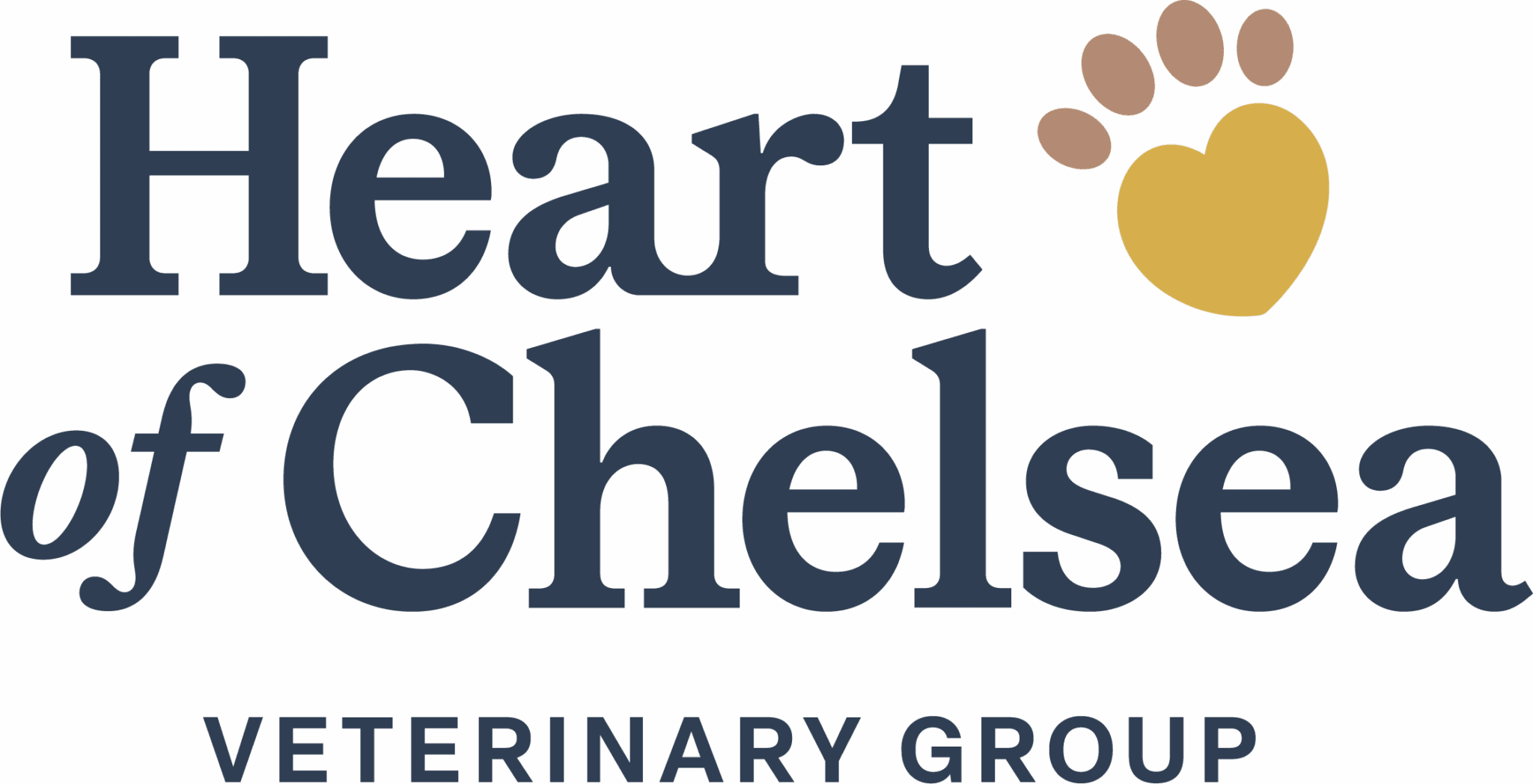Vaccinating your dog may not be the most exciting part of pet ownership, but it plays a major role in your dog’s long-term health and quality of life. From early puppy shots to adult boosters, each vaccine helps your pet avoid serious illnesses that can spread quickly and become difficult to treat. If you’ve ever wondered which vaccines your dog needs, how often they should receive them, or why some are considered “core” while others are optional, this blog breaks it all down in a way that’s easy to understand. You’ll also learn how dog vaccinations fit into your pet’s overall wellness care—and why staying up to date matters more than you might think.

Why Dog Vaccinations Are Important for Your Pet’s Health
Vaccines help your dog build immunity to contagious diseases that can spread quickly and become life-threatening. Some of these conditions, like rabies and distemper, are not only dangerous to dogs but also transmissible to people and other animals. When your dog is vaccinated, their immune system learns how to recognize and respond to specific viruses or bacteria without causing illness.
Protecting Vulnerable Populations
Vaccinations are especially important for puppies, senior dogs, and pets with compromised immune systems. These groups tend to be more vulnerable and often rely on the immunity of healthy, vaccinated animals around them. By vaccinating your dog, you help protect other pets in your community, too. This concept, known as herd immunity, plays a significant role in disease prevention.
Supporting an Active Lifestyle
Keeping up with your dog’s vaccinations also supports their ability to stay active in the world. Many pet-friendly spaces—such as grooming salons, daycare facilities, and boarding kennels—require proof of current vaccinations. Staying current means your pet can safely participate in activities you both enjoy.
Core Dog Vaccinations: What Every Dog Needs
Core vaccinations are recommended for all dogs, regardless of their lifestyle or environment. These vaccines target the most severe and widespread diseases. Veterinarians throughout the U.S., including our team at Heart of Chelsea Veterinary Group, consider these vaccinations a necessary part of every dog’s care plan.
Rabies
Rabies is a viral disease that affects the nervous system and is nearly always fatal once symptoms appear. It’s transmissible to humans and is required by law in most states. The rabies vaccine is usually first given when a puppy is around 12 to 16 weeks old, with boosters administered on a regular schedule, depending on the vaccine used.
Canine Distemper
Distemper is a serious virus that affects a dog’s respiratory, gastrointestinal, and nervous systems. It spreads through direct contact with an infected animal or contaminated objects. Puppies are especially at risk, and the disease can be fatal. The distemper vaccine is often combined with other core vaccines in a single shot, commonly known as the DHPP vaccine.
Parvovirus
Parvo is a highly contagious virus that attacks the digestive system. Symptoms include severe vomiting, diarrhea, and dehydration, often requiring hospitalization. It spreads easily in areas where dogs congregate and can survive in the environment for long periods. Vaccination offers strong protection against this aggressive virus.
Adenovirus (Canine Hepatitis)
This virus causes infectious canine hepatitis, which affects the liver, kidneys, and eyes. Symptoms range from mild fever to severe organ damage. The adenovirus vaccine is also part of the DHPP combination and is essential for long-term protection.
Non-Core Dog Vaccinations: Tailored to Your Dog’s Lifestyle
Non-core vaccines are not necessary for every dog, but they offer important protection depending on your pet’s risk factors, such as their geographic location, daily activities, and exposure to other animals. At Heart of Chelsea Veterinary Group, we help you determine which non-core dog vaccinations are appropriate for your pet.
Bordetella (Kennel Cough)
Bordetella bronchiseptica is a bacterial infection that contributes to kennel cough, a highly contagious respiratory condition. Dogs who attend daycare, visit dog parks, or stay at boarding facilities benefit from this vaccine. The Bordetella vaccine is often required by grooming and boarding businesses.
Leptospirosis
Leptospirosis is a bacterial disease that spreads through contaminated water, soil, or urine. Dogs who spend time in wooded areas or near bodies of water may face increased exposure. This vaccine is particularly important in areas where leptospirosis outbreaks have occurred.
Canine Influenza
Like the human flu, canine influenza is caused by specific viral strains and spreads easily in group settings. Although not typically life-threatening, the illness can lead to complications, especially in senior pets or those with respiratory issues. The canine flu vaccine may be recommended if your dog spends time in social settings.
Lyme Disease
Lyme disease is transmitted by ticks and can lead to joint pain, lethargy, and more serious complications if left untreated. Dogs who live in or travel to areas with high tick populations may benefit from this vaccine. We can help you weigh the benefits based on your dog’s outdoor activities and environment.
Puppy Vaccination Schedule: Starting Early Matters
Puppies receive maternal antibodies at birth, but these natural protections begin to fade around six weeks of age. That’s why early vaccination is key. A structured vaccine schedule helps puppies build immunity during their most vulnerable months. Puppies typically begin their vaccinations at six to eight weeks of age. Boosters follow every three to four weeks until around 16 weeks. Core vaccines are prioritized first, while non-core vaccinations may be introduced based on the puppy’s needs. After the first year, many vaccines move to a one- to three-year schedule, depending on your veterinarian’s recommendations and the vaccine type.
Adult Dog Vaccination Schedule: Maintaining Protection
Vaccination doesn’t end after puppyhood. Adult dogs need regular boosters to maintain immunity throughout their lives. The timing and frequency of these boosters depend on the type of vaccine, your dog’s health, and their environment.Dogs generally receive core vaccine boosters every one to three years. Non-core vaccines may require annual boosters, especially for dogs who remain at higher risk for certain diseases.
Keeping up with booster shots helps your dog stay protected and ready for travel, boarding, or social outings. Annual wellness visits provide an ideal opportunity to review your pet’s vaccine status. Our team at Heart of Chelsea Veterinary Group can recommend updates based on your dog’s current lifestyle and health needs.
What to Expect After Your Dog’s Vaccinations
Most dogs tolerate vaccines very well, but mild side effects are normal. Your dog may feel a little tired, have a mild fever, or experience slight swelling at the injection site. These symptoms typically resolve within a day or two.
Is It Necessary to Contact Your Veterinarian?
More serious reactions are rare, but it’s always a good idea to monitor your dog after each vaccination. If you notice vomiting, facial swelling, or difficulty breathing, contact your veterinarian right away.
The Safety and Effectiveness of Vaccines
Vaccines go through rigorous safety testing, and the benefits far outweigh the potential for side effects. Let your vet know if your dog has had a reaction in the past so we can adjust their care plan moving forward.
Building a Lifetime of Protection
Dog vaccinations are a simple but powerful way to support your pet’s health at every stage of life. By following a schedule that fits your dog’s unique needs and updating their vaccinations as recommended, you help reduce their risk of preventable diseases and ensure they remain active members of your family and community. The team at Heart of Chelsea Veterinary Group is here to guide you through each step of the vaccination process. Call one of our locations or book an appointment online today to talk with our team and build a plan that keeps your dog protected.
Recent Posts
About Us
Heart of Chelsea Veterinary Group is more than an animal hospital; we are your partner in giving your pet a lifetime of outstanding care. Our veterinarians and team members form lasting relationships with pet owners like you to create unique, personalized experiences for all. Heart of Chelsea was founded in 1999 to provide the community with a neighborhood veterinary practice that delivers thorough, compassionate medicine and unparalleled concierge client service.


